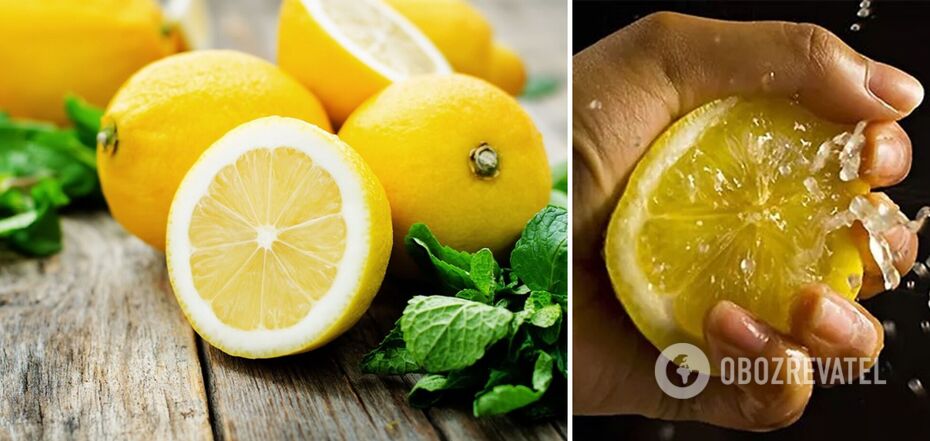Food
Why you should not drink tea with lemon and when you should eat zest only
Today we are going to talk about a product that everyone has known since childhood: lemon. Many people use it in their daily diet, adding it to side dishes, salads, drinks or desserts. Citrus fruits - oranges, tangerines, grapefruits, pomelos and, of course, lemons - are usually present on our table during the cold season.
Lemon is considered a source of ascorbic acid because it is sour. Some people "vitaminize" against colds with lemon, eating it in slices or adding it to tea and other drinks.
However, an average lemon weighing 60 grams can actually provide the body with 25-30 mg of vitamin C, which corresponds to one third of its daily requirement. But few people will eat a fresh citrus fruit whole with pulp and peel. Therefore, it is hardly worth counting on a lemon slice as a source of "ascorbic acid". Especially when it is put in a hot drink. Unfortunately, when it gets into hot water, the main amount of the vitamin is destroyed.
In addition to ascorbic acid, lemons contain small amounts of vitamins B6 and B1. Among the minerals, it is worth noting calcium (12.2%) and copper (9%) contained in the lemon peel. It also contains 4 times more fiber (42%) and pectin (40%) than the pulp.
Although lemons are not a record holder in terms of ascorbic acid content, they contain many other substances that show their beneficial properties. These are organic acids: citric and malic, phytoncides, rutin. The flavonoids hesperidin and diosmin improve blood circulation and help prevent the development of atherosclerosis, while limonene, naringenin, and coumarins have antitumor effects. However, it is worth noting that it is very difficult to get a high dose of these substances by eating lemons only. Nevertheless, regular consumption of lemon and its zest will enrich your diet with these valuable substances. Moreover, their amount in lemons remains unchanged almost all year round.
However, lemon may not be useful for everyone. Specific proteins of citrus fruits and lemon in particular are allergens, especially if these fruits are consumed in large quantities. Therefore, children should be given lemon and other citrus fruits with caution and in small quantities. People with high acidity, stomach ulcers, and a problematic pancreas should not get carried away with lemons. In such cases, it is better to use its zest rather than the lemon itself.
The main rule to follow is to eat lemon in reasonable quantities.



























